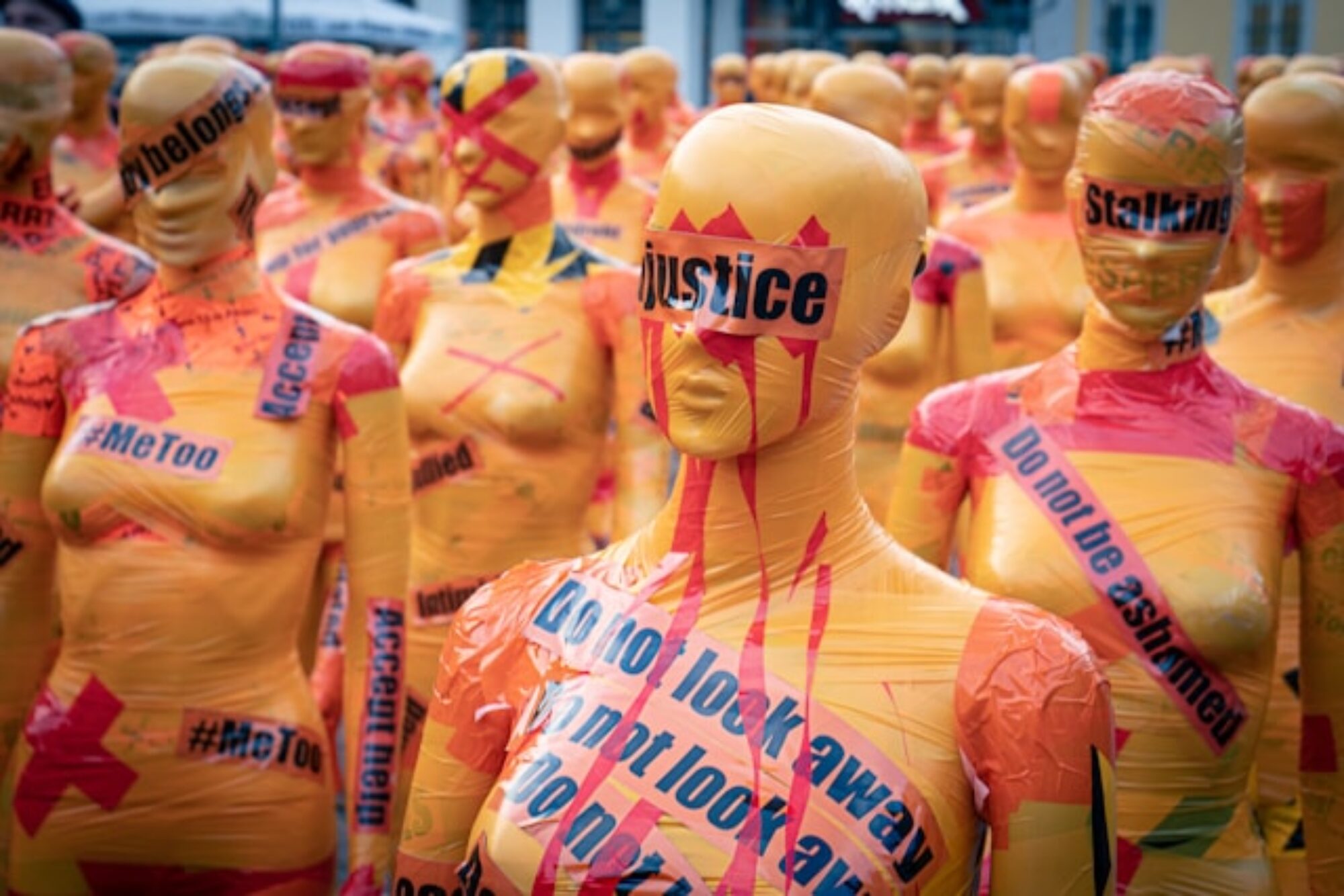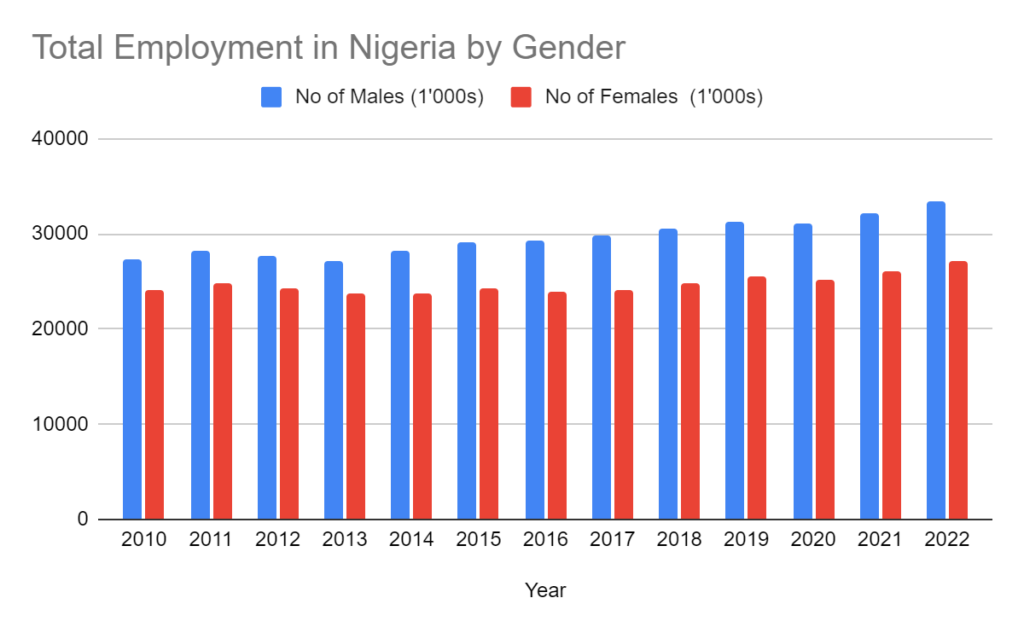
|
Getting your Trinity Audio player ready...
|
Imagine a twin being born, one male and one female. Yet, despite being born on the same day, one is automatically considered superior to the other. Isn’t that absurd? And shouldn’t we seek a change so that both individuals are treated equally and fairly? This is what the feminist movement is all about.
In our society, men are automatically regarded as superior to women. Many argue that this is because men have greater physical strength than women. However, the average male strength is due to their biology. Meanwhile, women possess the unique ability to gestate a foetus in their womb and give birth to children. This is a superior biological advantage that women have over men. As such, even though men and women have different biological makeups, the difference does not make men automatically superior. Difference differs from superiority. Men and women are not the same; they are uniquely different in their biological make-up. This uniqueness should be celebrated, not used as a justification to oppress one over the other.
In humanity, there are just male and female people. To regard one class of human as superior to another is dehumanising to the other group, unfair and unjust. Yet, the world has largely ordered itself in a manner where men are regarded as superior to women. This form of order is evident in religion, cultural practices, political systems, and social and cultural norms.
For instance, in Nigeria, the two most widely practised religions regard men as superior to women and perpetuate gender inequality. Islam expects men to lead women, requiring men to be in front and women behind during prayers, among other sexist Islamic doctrines. In Christianity, women are expected to submit to their male counterparts in marriage. The Bible also claims that women were created from the ribs of men. However, hospitals are filled with women giving birth to boys who grow up to be men.
Cultural norms, such as in the Yoruba and Igbo lineages of Nigeria, expect women to submit to men in marriage, serve them, and even kneel and feed their husbands during wedding proceedings.
Furthermore, in Nigeria’s political system, men are primarily the ones with the opportunity to lead the country, with mostly men appointed to serve. Since Nigeria became a republic in 1963, 16 individuals have served as head of state, all of whom have been men, despite the country belonging equally to both men and women. Moreover, Nigeria’s 36 states are all governed by men.

In other political areas, women hold only 3% of seats in the Senate and 4% in the House of Representatives. The situation is dire, and many factors contribute to it.
Girls are groomed from childhood to serve their male counterparts, both sexually and domestically, when they become adults. This leads to harmful practices like female genital mutilation, girls being excluded from education, and many being discouraged from being ambitious so that they can have the opportunity to become wives. For instance, Nigeria is the third-largest survivor of female genital mutilation, with 19.9 million women having undergone genitals cutting. The country further has 7.6 million girls deprived of education simply because they are born female. The numbers are staggering, and the issues are multidimensional and interconnected.
In a world where girls are groomed to serve their male counterparts when they become adults, they automatically become handicapped from aspiring to hold ambitious positions in society. This, in turn, leads to women being unable to hold political positions due to lacking careers, being economically disadvantaged, being victims of male violence against women, including forced dependence, femicide, rape, and being unable to fight back. Due to the ideology that men are superior to women and the grooming of girls to believe so, backed by political, educational, and economic exclusion, women are unable to live their lives to the fullest.

With the problem lingering for many years, women began to organise themselves so that they could take control of their lives and live free from male violence, dehumanisation, and societal exclusion from opportunities. The movement is called feminism.
Derived from the Latin word, “Femina,” meaning woman, and the Greek suffix “-ism” (ισμός” or “ismós), meaning a belief, practice, or worldview, feminism is a worldview that women are not inferior to their male counterparts. This belief informs feminist actions, such as speaking out against any practice, system, idea, person, or action that perpetuates discrimination against women because of their sex.
Nigerian women resisting gender inequality has existed for centuries
Although feminism is often associated with Western society because the term gained prominence when American women fought for their right to vote in the late 19th and early 20th centuries, Nigerian women have always advocated for their rights.
Buchi Emecheta, Queen Amina, and Olufunmilayo Ransome Kuti are prominent Nigerian women who challenged societal norms and fought for women’s and girls’ rights. Nigerian feminist organisations, such as Women in Nigeria (WIN) and the Nigerian Feminist Forum (NFF), have existed since the 1980s.
Moreover, Nigerian women have consistently faced misogyny, which is a form of hatred for women manifested in sexism, patriarchal norms, and femicide, among other forms. Nigerian women have resisted and continue to resist these misogynistic experiences. This is why the narrative that Nigerian women are trying to emulate Western feminists is incorrect.
Nigerian women know to speak out against the oppression they face in their society at the hands of men and the system of male supremacy; it is not emulation, and it is only right that women fight for their rights.
Why you should join the Nigerian feminist movement
In Nigeria, we have barely scratched the surface of treating women as equals to their male counterparts. Despite increasing numbers of women working, earning their own income, and being educated, there remains an expectation that women should serve their male counterparts.
Men still engage in conversations on X about women cooking for them, submitting to them, and taking their names—topics that many Western countries have long moved beyond. Nigerian society appears stuck with the notion that women must serve men. When a pregnant woman revealed that she woke up at 4:50 am to cook for her husband, individuals and organisations alike celebrated it.
Men still kill women over food, a Nigerian male police officer raped a girl at gunpoint in a police station, 46 men killed women they knew in the first half of 2024, Nigeria’s law still discriminates against women in the constitution, and Nigerian men still marry girls before they turn 18, making over 24 million girls child brides, amongst many other horrors.
The question is, why shouldn’t you be a feminist? There are hundreds of injustices perpetrated against millions of women and girls on both individual and structural levels. Why wouldn’t you want that to stop? Why wouldn’t you lend your voice to a more just and equal world?
Men and women are not the same, but they are equal—no buts, no ifs. It is only right that we live in a world where we have mutual respect for one another and do not try to put each other down.
Be a feminist today and wear the tag with pride!







2 Comments